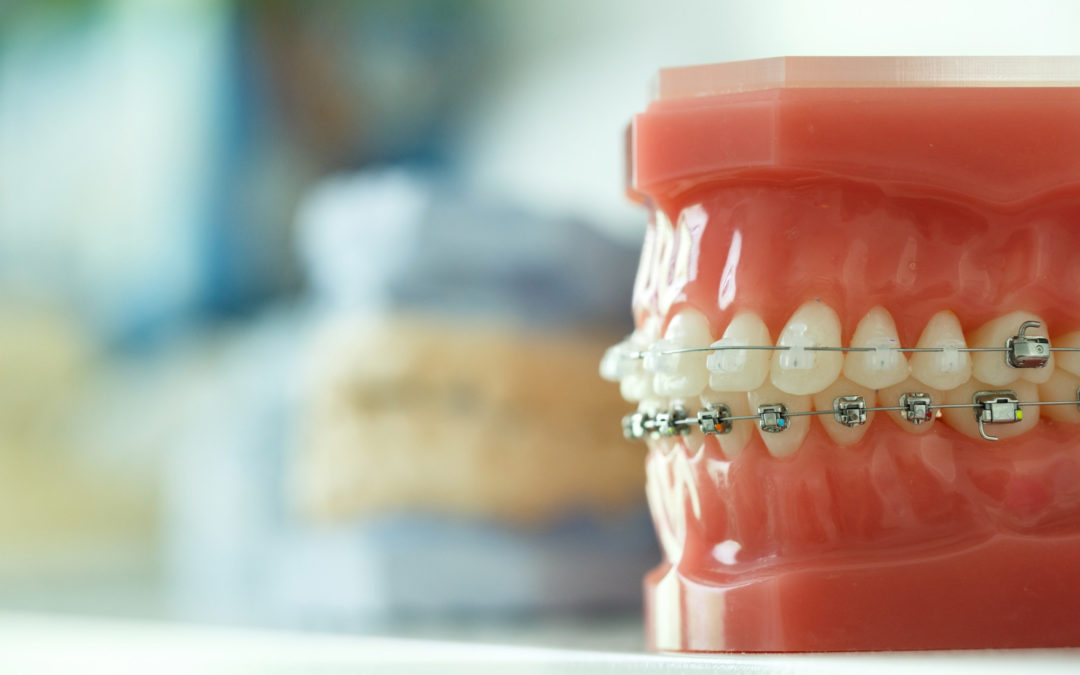Your smile is the first thing people notice. A bright smile conveys positivity and makes you appear approachable. It’s a universal sign of happiness.
Smiling is good for your health. Did you know smiling lowers your stress level, boosts your immune system, and can help your heart? Smiling is an innate and important human trait.
Children smile the most, as much as 400 times a day, and 30% of adults smile 20 times a day. Not only does smiling confer health benefits and make us feel better, but it makes us appear more likable and competent to others.
It’s important to feel confident with your smile so you can beam with enthusiasm. An underbite is an orthodontic condition that can affect your well-being. If your smile is not what you want it to be, we are here to help.
What Is an Underbite?
An underbite is when the lower jaw protrudes beyond the upper jaw. Clinically called a prognathism, it’s a Class III malocclusion that can cause pain, discomfort, and self-consciousness. The level of malocclusion can range from minor to severe.
Underbites affect between 5 and 10 percent of the population.
What Causes an Underbite?
Underbites are generally caused by the same reason your eyes are brown or blue and your hair is thick or thin – genetics. Often underbites or teeth overcrowding runs in the family.
Other factors that contribute to the development of an underbite are related to childhood behaviors. Thumb sucking, tongue thrusting against the teeth, mouth breathing, and using a pacifier or bottle for too long can all cause an underbite.
A 2012 study showed that thumb/finger sucking and pacifier use were associated with the development of a malocclusion, especially after age 3, including an underbite.
What Are the Complications of an Underbite?
Depending on the degree of the underbite, complications can range from mild to severe and can affect both your physical and mental health.
In some cases, underbites cause complications and other jaw issues. Chronic jaw pain, or Temporomandibular Joint Disorder (TMJ), is a common side effect of an underbite. TMJ creates a feeling that your jaw is locked or stuck and can result in popping sensations and considerable pain in the jaw.
Other side effects of TMJ include chronic headaches, toothaches, earaches, dizziness, and hearing problems.
Other effects of an underbite include eating and chewing difficulties, headaches, tooth decay (and subsequent gingivitis and/or cavities from teeth misalignment), chronic mouth breathing, speech issues, halitosis, and sleep apnea.
Many of these conditions can lead to additional complications. Chronic mouth breathing can worsen asthma, sleep apnea, and halitosis. Sleep apnea, a concern in itself, is a serious sleep disorder in which breathing stops and starts during sleep.
Because underbites affect the shape and presentation of your face and mouth, many people become self-conscious about their appearance with an underbite, affecting their self-esteem and mental health.
A 2018 study showed that orthodontic treatment had an overwhelmingly positive mental health benefit on people suffering from a variety of conditions.
How Do You Correct an Underbite?
Underbites are corrected using various treatments, depending on the age of the patient and the cause of the underbite.
In children, treatment can involve upper jaw (“palatal”) expanders, chin caps, reverse face masks, or braces, such as Invisalign. It’s best to treat orthodontic conditions in childhood because the jaw is still growing and malleable.
The American Academy of Orthodontics (AAO) suggests all children have an orthodontic screening by age 7. Early detection ensures treatment while the jaw and teeth are adaptable.
If you’re an adult with an underbite, there are still options available. Because the jaw is no longer growing, surgery is often needed for severe cases. Jaw surgery is performed frequently and is generally low-risk.
Healing usually takes between 6 and 12 weeks, and you should avoid tobacco products and strenuous activity. Most people are back to work and regular activities within a couple of weeks.
In mild or moderate cases tooth extraction can help.
Braces, or clear aligners (Invisalign), can also correct an underbite. Sometimes surgery and Invisalign are recommended together to repair an underbite.
How Can Invisalign Help?
Invisalign is an aligner system that straightens teeth without wires. Smooth, clear, durable plastic is molded into an aligner that snaps into place on your teeth. They are replaced every two weeks, providing consistent and nearly invisible correction for various orthodontic conditions. Invisalign is comfortable, discreet, and removable (when eating, for example).
Invisalign can be used to treat an underbite by moving the bottom teeth back into a proper position behind the upper teeth. In severe cases of underbite, it might be necessary to combine other orthodontic treatments with Invisalign.
The Invisalign Process
The treatment process for Invisalign is simple and straightforward. It starts with a consultation to determine the best treatment plan. Digital impressions are taken (no more messy traditional dental impressions). You are fitted with aligners to be switched out at home.
Benefits include fewer office visits and no food restrictions. You can remove them at any time. Since Invisalign work by providing a gentle and consistent pressure, they’re also virtually pain-free.
Put Your Best Face Forward
There is no reason you or your child need to live with an underbite and the potential physical and emotional consequences. Underbites are treatable and the results can improve your life in many ways.
Contact us for a free consultation to assess your needs and determine a treatment plan. We are here to help.

